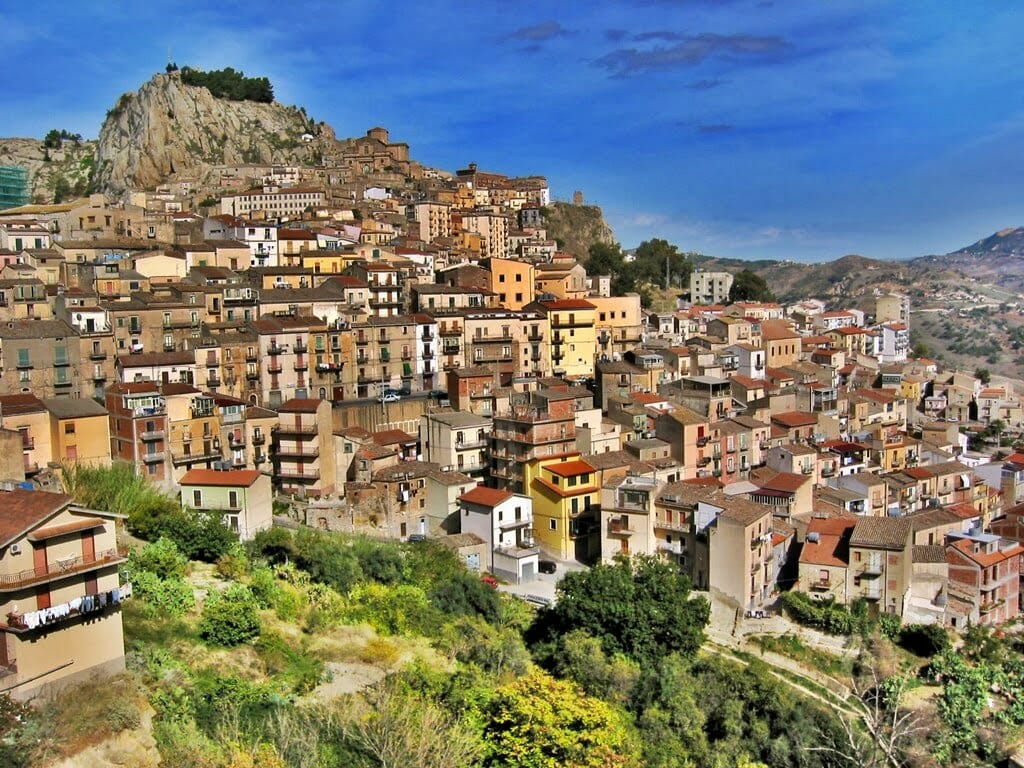 “I live in Nicosia and was born and grew up in an Orthodox family that was Christian in name only. There was no depth, no relationship with Jesus. Indeed, God was the ally of my parents, and they seemed to have a monopoly on Him when they wanted us to obey them. When I finished high school, I received a scholarship to study orthodontics in Hungary. It was difficult for me to get used to the new sitaution. For the first time I was far from my family, living with people I didn’t know. Back then, we were far from the multicultural spirit that prevails today. I was filled with prejudices, with an attitude of rejection. During that year I encountered many disappointments, also from my friends. Meanwhile, the deep search for a more authentic life had begun in me. At the new college I met a Hungarian girl. I had been struck by her cheerfulness and also the way she accepted others. She even offered to help me learn Hungarian. Disappointed by my previous experience with friends, her way of acting made me wonder: ‘Is she sincere, or only kidding?’ But . . . I began to trust her. We shared joys, sorrows, failures and also material things. When she went home to her family on the weekends, around 50 km from Budapest, she took me along so that I wouldn’t be missing my own family. Her family were farmers, very loving, warm and hospitable. But there was one question: Every day at the same hour, and one evening every week she would disappear without explanation. All I knew was that she was with other friends. It turns out that she was with several young women who belonged to the growing Focolare community in Hungary. Back then – when were under the Socialist Regime – anyone discovered belonging to a religious movement was persecuted with serious consequences, such as loss of one’s job, or place at university. One day she felt comfortable enough to confide in me. She told me how she had come to know the Focolare Movement. A priest from her village had recounted to her the story of Chiara Lubich, a young woman like us, of our same age, and how she had been struck by the fact that during the Second World War, Chiara saw everything crumbling around her and the only ideal that didn’t crumble under the bombs was God. She wanted God to be her ideal in life, and to live according to His will. She explained to me that she and those young women she met with were trying to do the same thing. They placed God first in their life, living the Word of Life each day, a sentence taken from the Gospel with an explanation by Chiara. Then they recounted their daily experiences to each other, as a gift for each other. Everything she told me touched me so deeply, I began reading the New Testament, which I had never done before, and this was a decisive moment for my future. Life began to change. All the people I met each day, I could no longer ignore them, nor judge them, nor undervalue them, because now a new mentality had been born in me: we’re all children of One Father and therefore brothers and sisters to each other. Every person is a candidate for the unity that Jesus asked of His Father: that all may be one: the good, the bad, the ugly, the unlikeable, the big and the small. . . The theology of the Fathers had been awakened in me, especically that saying of Saint John Chrysostom: ‘I see my brother, I see my God’. The walls of prejudice that I built up within me, began to crumble. I realised that the Gospel was not only something to be read out in church and that was it; rather, it could bring about a revolution if we took it seriously and translated it into daily life: at the university, at the factory, at the hospital, in the family! Amidst all of this enthusiasm and joy that was filling my life, there was one great sorrow: The other girls were all Catholics, and I was the only Orthodox. They attended Mass every day. I strongly desired to be with them in those moments, but they suggested that I look for my Orthodox Church in Budapest so that I could attend the Liturgy and receive the Eucharist. This separation was painful, but Chiara had invited the members of the Movement belonging to other Christian Churches, to love their Churches, just as she had loved hers. This explanation gave me peace and, once again, it confirmed in me the wisdom, love and descretion that Chiara possessed in front of the believers of different Churches. It could not have been anything but the fruit of God’s intervention in our times. I found the Orthodox parish and got to know it more. I went every Sunday and, with the permission of the priest was able to receive Holy Communion any time there was a Divine Liturgy. They never left me alone in this new initiative. The other young Catholic women often attended the Liturgy with me. The liturgical and sacramental life was no longer something formal or external, but a relationship that was building with Jesus, the activation of God’s grace in my heart that helped in the daily struggles and increased the fruits of love, joy and peace within me.” At Istanbul, March 14, 2015, on the occasion of the publication of the Greek editions of Chiara Lubich’s writings.
“I live in Nicosia and was born and grew up in an Orthodox family that was Christian in name only. There was no depth, no relationship with Jesus. Indeed, God was the ally of my parents, and they seemed to have a monopoly on Him when they wanted us to obey them. When I finished high school, I received a scholarship to study orthodontics in Hungary. It was difficult for me to get used to the new sitaution. For the first time I was far from my family, living with people I didn’t know. Back then, we were far from the multicultural spirit that prevails today. I was filled with prejudices, with an attitude of rejection. During that year I encountered many disappointments, also from my friends. Meanwhile, the deep search for a more authentic life had begun in me. At the new college I met a Hungarian girl. I had been struck by her cheerfulness and also the way she accepted others. She even offered to help me learn Hungarian. Disappointed by my previous experience with friends, her way of acting made me wonder: ‘Is she sincere, or only kidding?’ But . . . I began to trust her. We shared joys, sorrows, failures and also material things. When she went home to her family on the weekends, around 50 km from Budapest, she took me along so that I wouldn’t be missing my own family. Her family were farmers, very loving, warm and hospitable. But there was one question: Every day at the same hour, and one evening every week she would disappear without explanation. All I knew was that she was with other friends. It turns out that she was with several young women who belonged to the growing Focolare community in Hungary. Back then – when were under the Socialist Regime – anyone discovered belonging to a religious movement was persecuted with serious consequences, such as loss of one’s job, or place at university. One day she felt comfortable enough to confide in me. She told me how she had come to know the Focolare Movement. A priest from her village had recounted to her the story of Chiara Lubich, a young woman like us, of our same age, and how she had been struck by the fact that during the Second World War, Chiara saw everything crumbling around her and the only ideal that didn’t crumble under the bombs was God. She wanted God to be her ideal in life, and to live according to His will. She explained to me that she and those young women she met with were trying to do the same thing. They placed God first in their life, living the Word of Life each day, a sentence taken from the Gospel with an explanation by Chiara. Then they recounted their daily experiences to each other, as a gift for each other. Everything she told me touched me so deeply, I began reading the New Testament, which I had never done before, and this was a decisive moment for my future. Life began to change. All the people I met each day, I could no longer ignore them, nor judge them, nor undervalue them, because now a new mentality had been born in me: we’re all children of One Father and therefore brothers and sisters to each other. Every person is a candidate for the unity that Jesus asked of His Father: that all may be one: the good, the bad, the ugly, the unlikeable, the big and the small. . . The theology of the Fathers had been awakened in me, especically that saying of Saint John Chrysostom: ‘I see my brother, I see my God’. The walls of prejudice that I built up within me, began to crumble. I realised that the Gospel was not only something to be read out in church and that was it; rather, it could bring about a revolution if we took it seriously and translated it into daily life: at the university, at the factory, at the hospital, in the family! Amidst all of this enthusiasm and joy that was filling my life, there was one great sorrow: The other girls were all Catholics, and I was the only Orthodox. They attended Mass every day. I strongly desired to be with them in those moments, but they suggested that I look for my Orthodox Church in Budapest so that I could attend the Liturgy and receive the Eucharist. This separation was painful, but Chiara had invited the members of the Movement belonging to other Christian Churches, to love their Churches, just as she had loved hers. This explanation gave me peace and, once again, it confirmed in me the wisdom, love and descretion that Chiara possessed in front of the believers of different Churches. It could not have been anything but the fruit of God’s intervention in our times. I found the Orthodox parish and got to know it more. I went every Sunday and, with the permission of the priest was able to receive Holy Communion any time there was a Divine Liturgy. They never left me alone in this new initiative. The other young Catholic women often attended the Liturgy with me. The liturgical and sacramental life was no longer something formal or external, but a relationship that was building with Jesus, the activation of God’s grace in my heart that helped in the daily struggles and increased the fruits of love, joy and peace within me.” At Istanbul, March 14, 2015, on the occasion of the publication of the Greek editions of Chiara Lubich’s writings.
Yes to God
Yes to God




0 Comments